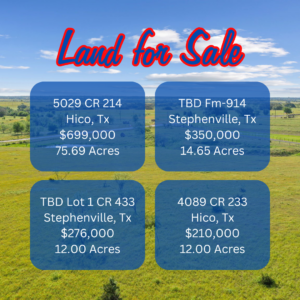When searching for land, you might come across the term “unincorporated.” This type of land is most common in rural areas, but it can also be found near cities.
Like any land purchase, it’s important to gather as much information as possible. Here’s a quick overview of unincorporated land, along with some pros and cons to help you decide if it’s the right fit for you.
What is Unincorporated Land?
Unincorporated land isn’t governed by a municipality. It can either be part of a larger incorporated town or completely separate. These areas lack official local government representation, though they still follow county laws regarding zoning, water usage, and waste management. Essential services may be provided by nearby towns, and landowners are typically taxed to cover these costs.
Laws regulating unincorporated land vary by state, so your experience could differ widely depending on the location.
Pros and Cons of Unincorporated Land
Pros:
- Less municipal oversight: While county laws still apply, unincorporated areas tend to have fewer zoning restrictions.
- Lower sales taxes: Many unincorporated areas have lower taxes than neighboring towns, which can affect things like car registration or retail purchases.
- More privacy: Larger lots and fewer restrictions allow for more freedom and privacy.
Cons:
- Limited services: Essential services like water, fire protection, and road maintenance may be less efficient or more costly.
- Higher property taxes: In some cases, property taxes may be higher since services are funded separately.
- Reduced infrastructure: You may encounter fewer amenities, such as paved roads, streetlights, and public transportation.
Evaluating Unincorporated Land Before Buying
Before purchasing unincorporated land, research local regulations, services, and infrastructure.
- Understand zoning laws by contacting the county planning department.
- Check available services like water, waste management, and law enforcement, which might be limited or outsourced from neighboring towns.
- Assess infrastructure needs, including road conditions and street lighting. You might need to invest in improvements.
- Consult local experts like real estate agents and county officials to understand the area and any potential challenges.
Is Unincorporated Land Right for You?
Unincorporated land may be ideal if you value privacy and flexibility, particularly in rural areas. With fewer restrictions, it’s great for custom homes, hobby farms, or a more secluded lifestyle. Lower property costs can also make it attractive.
However, you should weigh these benefits against potential downsides, such as limited services and higher infrastructure costs. The decision ultimately depends on your personal preferences and how the land aligns with your goals and lifestyle.




